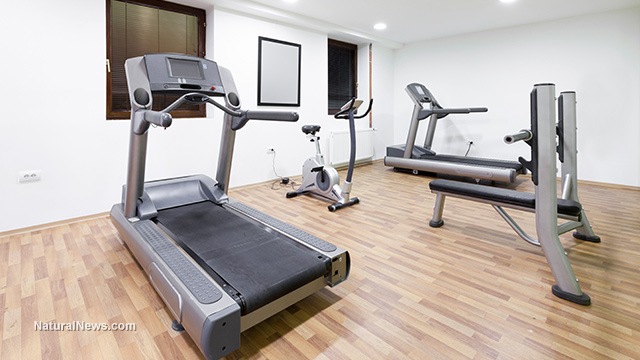What?! Goofy, incomplete study concluding exercise does NOT reduce body fat did take nutrition into consideration
05/31/2016 / By usafeaturesmedia

(WomensFitnessFocus.com) Serving as further evidence of how little the mainstream scientific community understands about nutrition and health, a new study recently published in a reputable health journal makes the outrageous claim that exercise can actually cause some people to gain weight in the form of added fat.
Researchers from the Arizona State University (ASU) School of Nutrition and Health Promotion somehow came to the conclusion that aerobic exercise in women “typically results in minimal fat loss,” despite their initial hypothesis that the opposite was likely true, and that increases in body fat among some women could be the direct result of exercise training.
Arizona State University exercise study did not include nutrition adjustment
Completely ignoring the critical role that nutrition plays in determining body composition, the study’s authors put 81 women on an identical exercise regimen that did not involve analyzing or in any way adjusting their dietary habits. The only requirement was that whatever the women were eating before the study they were to continue eating throughout it.
After 12 weeks of supervised treadmill use – all of the women exercised for 30 minutes three times per week at 70 percent of their VO2 maximum – each of the women was analyzed for body composition. Without comparing or contrasting their diets in any way, the researchers found that, despite some small variations, most of the women did not lose weight or body fat.
Their conclusion, then, was that exercise may not help people lose weight and could, in fact, lead to the wrong kinds of weight gain.
Study women were overweight at start, suggesting poor diets and sedentary lifestyles
Mind you, all of the women were considered to have higher-than-normal baseline body fat ratios, meaning they were sedentary and probably not eating correctly at the beginning of the study. Some of them were much more overweight than others as well, though all of them were still considered to be generally healthy.
The problem with this format is that it’s unclear whether or not the women were eating junk food diets full of refined sugar and carbohydrates or whether they were eating more complete diets higher in healthy fats and protein. All we know from the study is that the women were heavier than normal and not very active, which suggests an unhealthy diet.
One would think that this major discrepancy would cause media outlets reporting on the study to step back and question its validity. Instead, the The New York Times (NYT), for example, openly affirmed it.
In a piece published on the news website’s “Phys Ed” section, writer Gretchen Reynolds rehashes outdated and untrue claims about generic calorie intake, and how the women must have been taking in more calories than they were burning through exercise. Nowhere in the NYT piece is there any mention made of the types of calories consumed, and how this affects body composition.
More fats and less sugar, carbs burn fat while building muscle
The truth is that simply looking at calories and assuming them to all be identical is a modern myth that is leading people down the path of obesity and ill health. For all we know, the women in the study were following a typical low-fat diet in an attempt to lose weight, which up-to-date science reveals simply won’t work.
“Low-carb, high-protein diets are effective for fat loss,” explains the Poliquin Group, a leading source of cutting-edge health science. “A lot of people find that cutting carbs in favor of a higher protein, higher fat diet is the simplest way to get lean fast.”
Reporting by Jonathan Benson, NaturalNews.com.
More:
- Beginning Exercise After Being Sedentary
- Ladies, How Important Is Sleep To Your Fitness? Let’s Review Some Research
WomensFitnessFocus.com is part of the USA Features Media network. Check out ALL our daily headlines here.





















